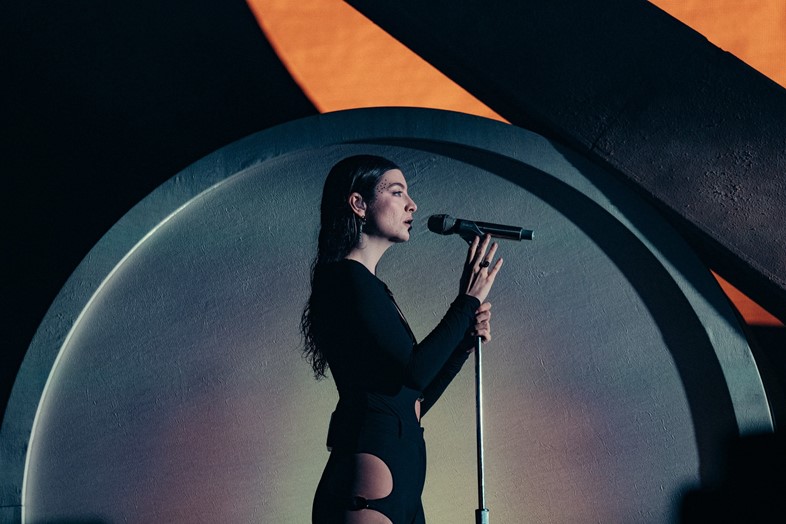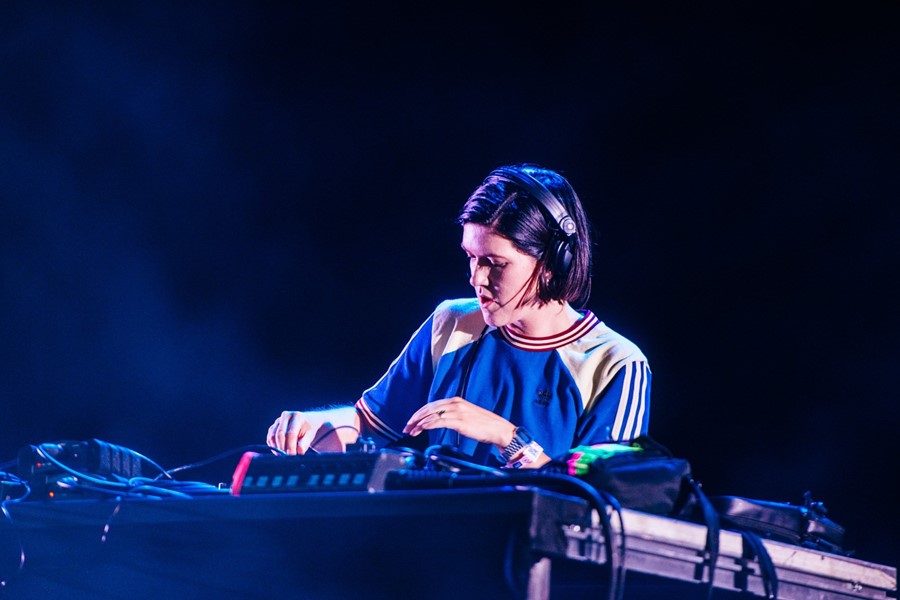With nearly 200 performers spread over three days, the real value of Primavera Sound lies in its potential for discovery for new artists, writes Daniel Rodgers
It’s nearing dawn in Barcelona and the blistering heat of the midsummer has finally given way to a breeze. Somewhere, on a secluded island not too far from the Elías Torres and José Antonio Martínez-designed Parc del Forum, a crowd has stretched out before Clare Boucher (otherwise known as Grimes) who’s emerged onto Primavera Sound’s Tous stage like a high priestess, her fluorescent, chiffon sleeves whipping around her arms with every crank of a mixing deck. There, she volleys between the glitching sounds of her own back catalogue and the cleansing, open-hearted chorus of Enya’s Orinoco Flow, as if some kind of cyborg had made contact with Mother Earth.
On the other side of the peninsula, though – where hundreds of festival-goers traipsed for 30 minutes across a network of walkways only to be barricaded at entry – things are a little less serene. That same journey would have taken less than five minutes had those people paid for VIP tickets to cross a central Soho House bridge; it was the first time that Primavera Sound had employed a two-tier system, which felt at odds with the festival’s inclusive ethos. Even despite improvements on its first weekend (where guests were unable to source water), logistical decisions continued to thwart the festival’s Covid comeback. And yet this year’s line-up – which housed superstars like Lorde, Tyler, the Creator, and Dua Lipa alongside Courtney Barnett, Japanese Breakfast and Clairo – proved itself to be unparalleled, cementing Primavera Sound’s reputation as the foremost European festival.

Soon enough, that same crowd dispersed into a central amphitheatre venue, where Danny L Harle soundtracked the sunrise with a 500 BPM rendition of Harlecore. That central stage also played host to Jessie Ware, Celeste, Slowdive, and Bicep, populating the weekend with some of its biggest audiences thanks to Cupra’s patronage – Spain’s answer to Tesla. As well as sponsoring the Boiler Room stage, a VIP area next to the main stages, and the Primavera Sound Radio outpost, the agenda-setting firm used Primavera to launch a slew of space-age models, making it a force both inside and outside of the festival. It felt like a fitting nod to the future, given that Primavera was celebrating its 20th anniversary – albeit belatedly.
A smorgasbord of world-class musicians, it’s difficult to distinguish the many highs the festival delivered, not least because clashes between acts became inevitable. Still, the figure of Nigerian singer-songwriter Burna Boy looms large, his charismatic presence bolstered by a booming choir, even if African music didn’t have much of a showing elsewhere on this year’s schedule. The same goes for Romy, who made the shift from indie rock to euphoric dance-pop on breaking away from The xx, and Sky Ferreira, who made her long-awaited return to music with a characteristically somnambulant set. But, with nearly 200 performers spread over three days, the real value of Primavera lies in its potential for discovery, providing an unlikely platform for artists like Arooj Aftab, a Pakistani vocalist and composer, whose reimagining of Urdu ghazal poetry shone through contemplative arrangements of plucked guitar, harp, and violin.
Though Barcelona may lay the scene for Primavera Sound’s most infamous (and chaotic) iteration, the festival has slowly been expanding through Porto, Santiago, Sau Paolo, LA, and Buenos Aires. It’s testament not only to the pull of a good time, but music’s ability to traverse borders, which the organisers behind Primavera Sound perhaps know better than anyone else.
